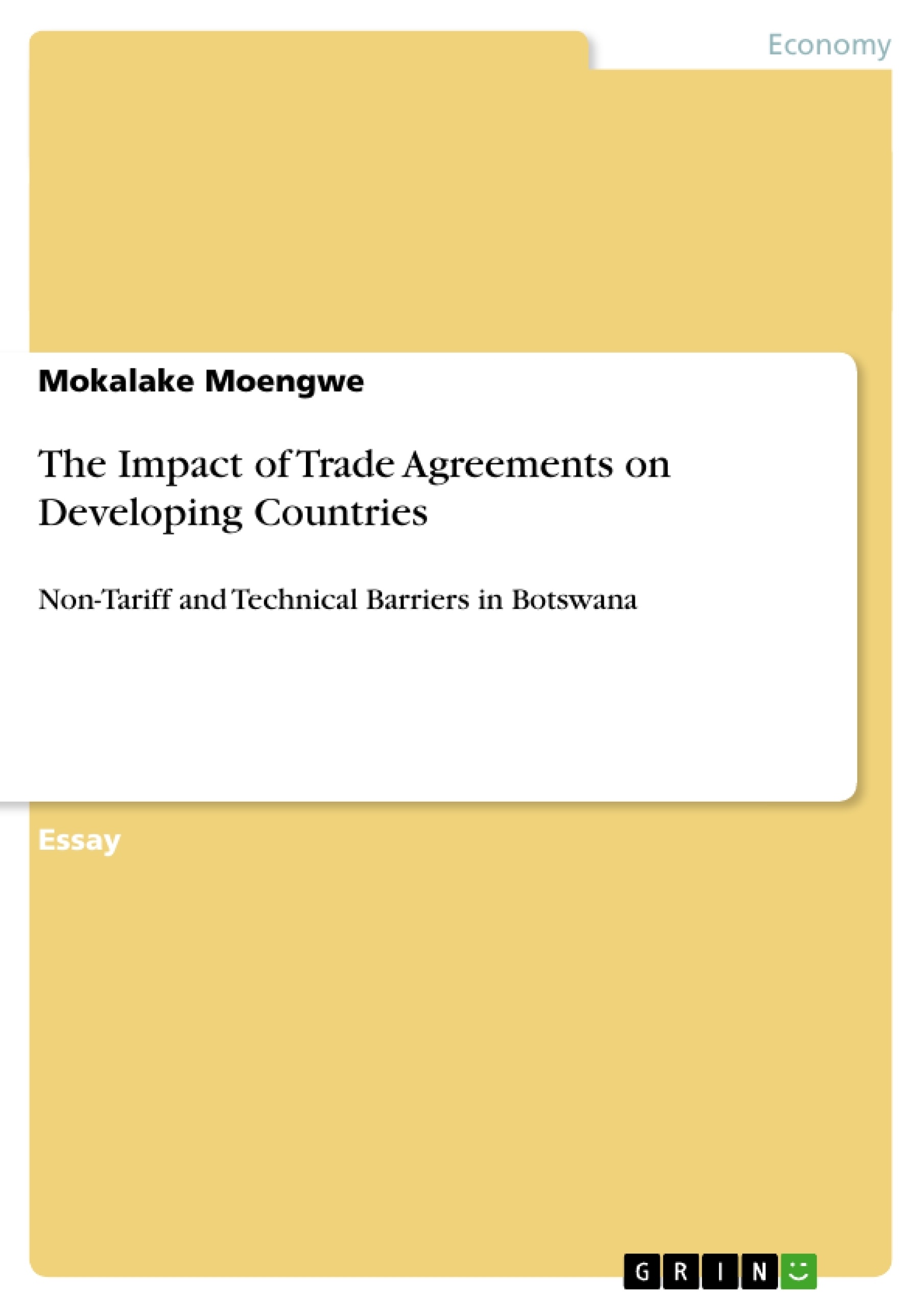An analytical look at some of the factors that contributed to the decline in beef trade of Botswana as part of the ACP group, with a sharp focus on the non-tariff barriers to trade and the technical barriers that the beef industry of Botswana is faced, with respect to the European markets
The Impact of Trade Agreements on Developing Countries
Non-Tariff and Technical Barriers in Botswana

Essay , 2014 , 7 Pages
Autor:in: Mokalake Moengwe (Author)
Economics - International Economic Relations
Excerpt & Details Look inside the ebook

